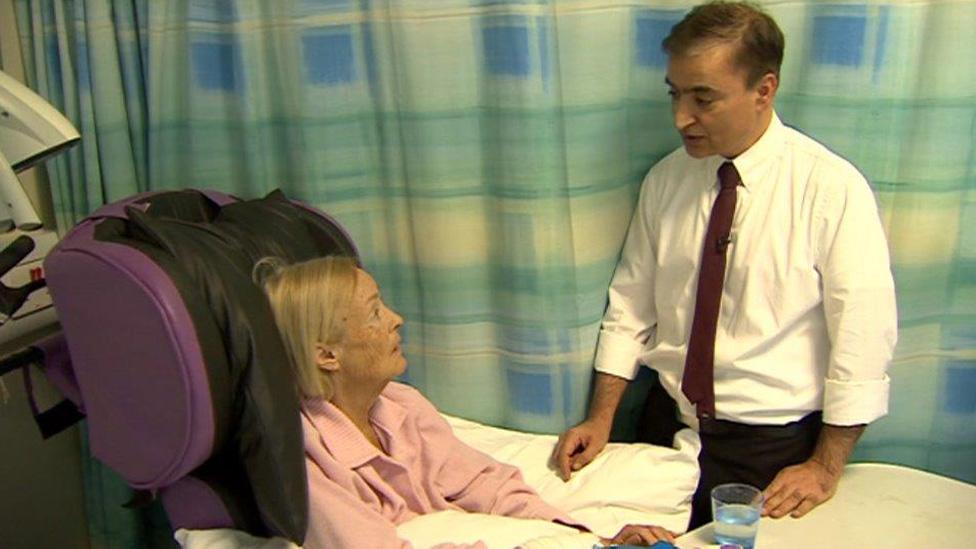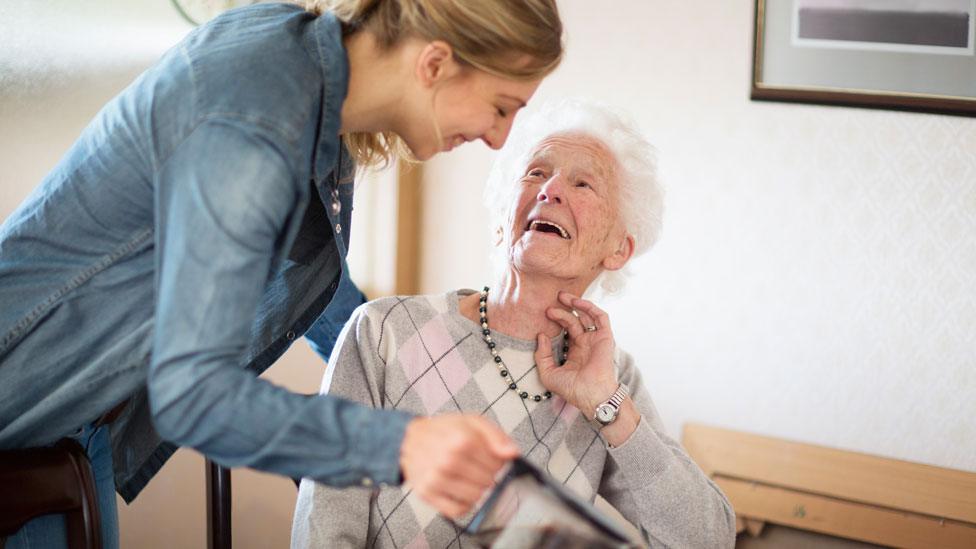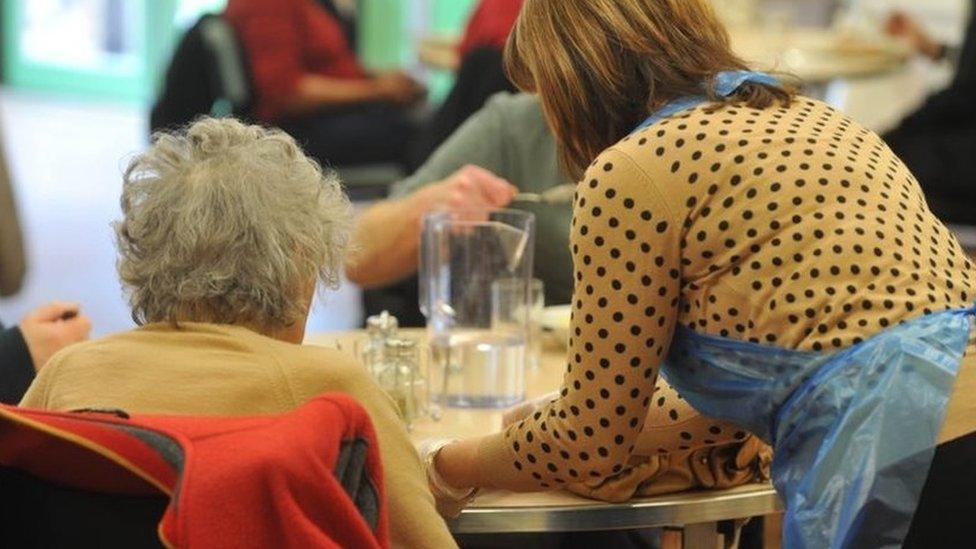Revolution in health and social care urged in Wales
- Published
- comments

A long-term health and social care plan is expected to be published in the spring
A "revolution" is urgently needed in the way health and social care is delivered in Wales says a major review.
Without "significantly accelerated" change, services which are already not fit for the future, will further decline, the expert panel warns.
The NHS and social care will be expected to work "seamlessly" together to respond to a person's needs and to deliver care closer to home.
Ministers say a new plan will take into account the review's recommendations.
Nine leading international experts, chaired by the former chief medical officer for Wales Dr Ruth Hussey, have been looking at ways to try to put the health and social care system on a stronger footing.
Its findings propose 10 recommendations, including:
Shifting resources away from big hospitals, investing in new technology and giving patients more choice about how and where they want to be cared for.
Urgent action to address "critical" staff shortages.
More to be done to protect the wellbeing of those working in health and care.
"More sophisticated methods" of listening to patients and those being cared for and more shared decision making with those it affects.
Building on the many great examples of quality improvements at local level with "many driven by heroic individuals in isolation due to lack of support and coordination".
But it warns that there is too much focus on narrow hospital targets rather than looking at the bigger picture.
It wants a new national transformation programme to drive forward changes.
However the panel warns this "won't be easy" and will involve "significant test of leadership... at national, regional and local level".
Without "faster" and "more widespread progress", access to and the quality of services could decline in the next five years.
Dr Ruth Hussey said the NHS was designed 70 years ago when things were very different
Dr Hussey said the scale of the challenge ahead should not be underestimated.
"It is clear that change is needed and even clearer that this should happen quickly," she said.
"We have detected an appetite for change and a desire to 'get on with it'. A strong commitment to transform not just how much is done, but what and how it is delivered is needed."

CHANGES AT A LOCAL LEVEL ALREADY
There are examples of good practice in the NHS and social care, which could be replicated.

Faster access to stroke specialist help in Newport has improved things for patients
Aneurin Bevan health board has made big improvements in looking after stroke victims after centralising in Newport two years ago and providing a seven-days-a week, high-level service.
After being one of the worst, it is now judged to be the best performing in Wales and mortality rates have also improved.
Dr Yaqoob Bhat, clinical director for stroke medicine, said: "Stroke patients can come at any time - it doesn't make sense having a different care on Monday and again on a Saturday.
"Also, how quickly you see that stroke patient is important - so being able to see a specialist straight away was one of the biggest changes as well."
Specialist rehabilitation is also provided at a smaller number of centres to focus more on expertise.
Doreen Tonkin, who is in her 80s, and occupational therapist Alex Gigg are involved in Aberdare's 'virtual ward'
Cwm Taf health board has a "virtual ward" for elderly and vulnerable people in their own homes in Aberdare, with GPs, paramedics, therapists and social services working together.
It also involves charities and a "care and repair" service so people are more able to stay and be looked after in their own communities rather than being hospitalised.
GP Dr Owen Thomas said: "Lots of elderly and infirm people find it hard to get down to the practice and a big number don't engage well with healthcare for other reasons, like mental health or learning difficulties.
"It's easy to blame the system but actually we're part of the system. So we came up with an ambitious plan to design it from the ground up."

The final report follows interim findings last summer calling for a much faster pace of change in the face of an ageing population.
Health Secretary Vaughan Gething said he would "carefully consider" the findings ahead of a new long-term plan for health and social care to be published in the spring.
"I believe that what we have seen today from the panel will set firm foundations for the future of health and social care in Wales for many years to come," he said.
Dr David Bailey, chairman of BMA Wales, welcomed the review but said it did not have a lot to say on critical aspects like funding and workforce.
"What we really need is better staffing levels, we need enough funding to deliver the services people need - it's around addressing winter pressures, addressing waiting lists.
"It's a curate's egg at the moment and we need to see how that goes."
Vanessa Young, director of the NHS Confederation, which represents health boards, welcomed the review and agreed a "different pace and scale of ambition" was needed to move to a seamless system and one with new ways of working.
"This report is saying we need to be more radical and look at new ways of doing things and involve the patient and the public more in saying what matters most to them," she said.
Helen Howson, director of the Bevan Commission think-tank, said: "We can't afford not to make changes.
"When people are being challenged on their targets, on their resources and on the huge demand on the system, you can understand why we're in the position we're in - it's like a rabbit caught in headlights."
- Published11 July 2017

- Published28 June 2017

- Published26 May 2017
